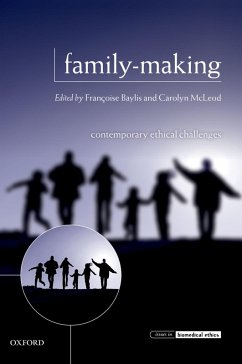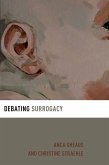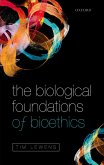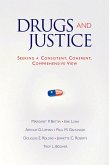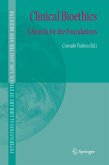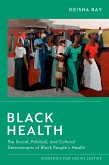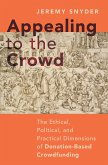This volume explores the ethics of making or expanding families through adoption or technologically assisted reproduction. For many people, these methods are separate and distinct: they can choose either adoption or assisted reproduction. But for others, these options blend together. For example, in some jurisdictions, the path of assisted reproduction for same-sex couples is complicated by the need for the partner who is not genetically related to the resulting child to adopt this child if she wants to become the child's legal parent. The essays in this volume critically examine moral choices to pursue adoption, assisted reproduction, or both, and highlight the social norms that can distort decision-making. Among these norms are those that favour people having biologically related children ('bionormativity') or that privilege a traditional understanding of family as a heterosexual unit with one or more children where both parents are the genetic, biological, legal, and social parents of these children. As a whole, the book looks at how adoption and assisted reproduction are morally distinct from one another, but also emphasizes how the two are morally similar. Choosing one, the other, or both of these approaches to family-making can be complex in some respects, but ought to be simple in others, provided that one's main goal is to become a parent.
Dieser Download kann aus rechtlichen Gründen nur mit Rechnungsadresse in A, B, BG, CY, CZ, D, DK, EW, E, FIN, F, GR, HR, H, IRL, I, LT, L, LR, M, NL, PL, P, R, S, SLO, SK ausgeliefert werden.

